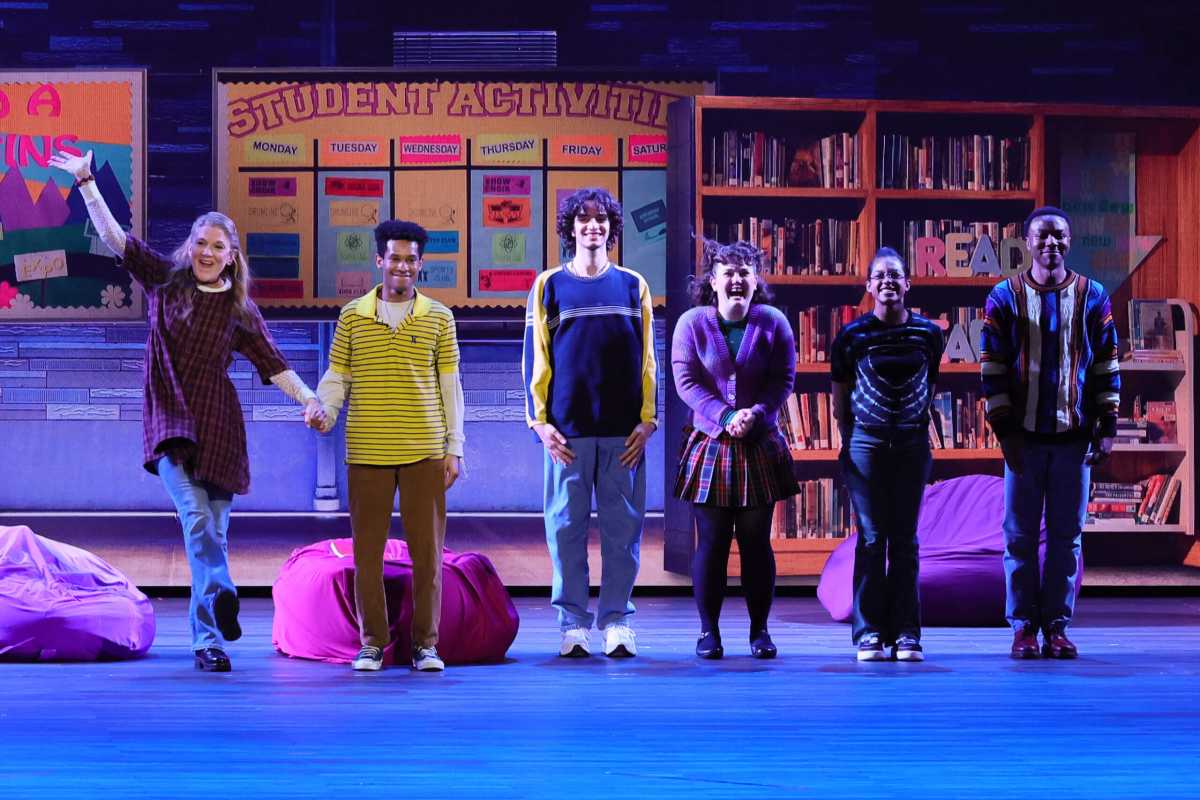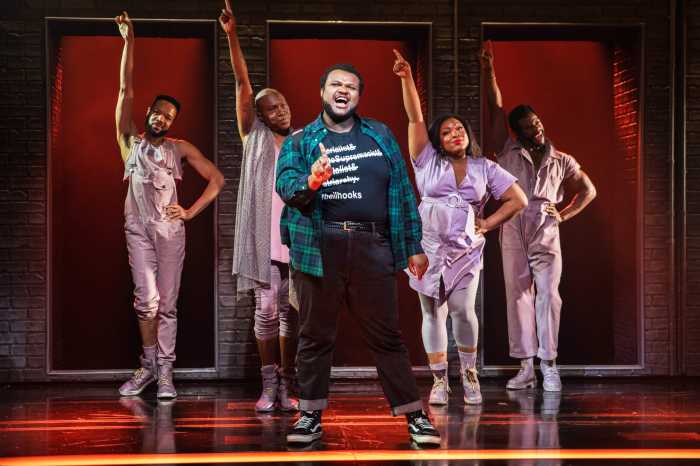The big surprise of the 76th Annual Tony Awards on Sunday night was not so much the winners–although some wins had noteworthy social significance–but rather the fact that the show managed to go forward in spite of the Writers Guild of America (WGA) strike, which almost caused the postponement or cancellation of the broadcast, and that it was so lively, freewheeling, and emotional that it ranks among the best Tony Award ceremonies of the 21st century.
In any other year, the teleprompter would have told Denée Benton exactly what to say as a presenter. But without a script and left to her own devices, Benton was able to take a shot at Florida Governor Ron DeSantis by referring to him as a “Grand Wizard,” instantly creating a viral moment.
Technically, it was the longest Tony Awards broadcast of all time–if you combine the 90-minute “Act One” pre-show on Pluto TV (when many awards were given out, including the lifetime achievement awards for Joel Grey and composer John Kandner) and the three-hour ceremony on CBS. By comparison, the 1967 Tony Awards broadcast, which opened with Grey performing with the cast of “Cabaret,” was just one hour long.
Rather than avoid the forced awkwardness of doing a script-free show (the result of a compromise reached with the WGA, pursuant to which the WGA agreed to not picket the show), the show’s organizers embraced it as a challenge. Ariana DeBose, finding that her script was full of blank pages, proceeded into a “La La Land” style dance number in which she and other dancers and musicians moved from the sparking lobby of the United Palace in Washington Heights, through the aisles, and up to the stage.
While “Kimberly Akimbo” (a dark musical comedy about a young girl with an advanced aging disorder) managed to win Best New Musical, this was a year where the wins were widely distributed–though it is unfortunate that the sublime revival of “Into the Woods” went unrecognized due to heavy competition (including from another Sondheim revival, “Sweeney Todd”).
Two acclaimed non-binary performers, J. Harrison Ghee (“Some Like It Hot”) and Alex Newell (“Shucked”), won the awards for Best Leading Actor in a Musical and Best Featured Actor in a Musical, respectively. Many on social media took notice that Newell, who appeared on “Glee” and later went on to criticize Lea Michele for her on-set behavior, won the award right in front of her.
Two decades ago, the Tony Awards proposed–and promptly nixed–a category to recognize a replacement performer in a long-running show. If such an award existed today, it would have no doubt gone to Michele for rescuing and revitalizing the Broadway revival of “Funny Girl.” Even so, Michele got to perform “Don’t Rain On My Parade,” which she previously sang at 2010 Tony Awards as a kind of audition for the role.
In 1999, “Parade,” a musical investigating anti-Semitism and Jewish identity in the early 20th century South, lost the Tony Award for Best Musical to “Fosse,” a lame Bob Fosse tribute revue. This year, “Parade” won Best Musical Revival over acclaimed revivals of “Into the Woods” and “Sweeney Todd,” while “Bob Fosse’s Dancin’” received no nominations.
Tom Stoppard’s “Leopoldstadt,” which won Best New Play, is also an exploration of historical anti-Semitism. (In recognition of the alarming rise of anti-Semitism in the world, two other new shows on the subject, the musical “Harmony” and the drama “A Prayer for the French Republic,” will come to Broadway next season.)
The takeaway of this year’s Tony Awards is that Broadway is resilient. In the face of the WGA strike, the show managed to go on. And despite post-pandemic challenges affecting attendance and grosses, as well as continuing cultural shocks and divisions, Broadway is soldiering on.


































